About TLC Medical Transport, Inc
TLC Medical Transport (TLC) provides safe, friendly, and reliable non-emergency medical transportation (NEMT). Our drivers are specially trained to ensure a clean, comfortable, and compassionate experience fostering dignity and respect for our clients. For rides to and from a hospital, a medical appointment, a pharmacy, or other passenger assisted transportation need, we are at your service.
We provide reliable, cost-effective options to manage transportation for patients to their various medical settings on an ongoing basis. TLC offers solutions to the growing challenge of getting patients to and from their appointments in a safe, timely manner. This is especially important for clients who are receiving ongoing medical care, or are disabled, and need assistance with essential transportation. About 70% of those using NEMT services are age 65 and older, and/or disabled.
NEMT is the preferred method of medical transportation in non-emergency situations in which family members are unavailable or cannot assist. The cost for NEMT services is significantly lower than traditional emergency transportation, while providing a much higher level of service than typical taxi service providers. Hospitals, out-patient clinics, physicians, and other healthcare facilities can use TLC as a reliable source of transport, significantly reducing missed medical appointments, while providing safe, on time travel.
Think of us as a ambulance taxi service for people with non-emergency medical needs throughout Oregon.
Lower Costs and Improve Access to Healthcare
TLC provides reliable, cost effective access to early intervention/preventive medical care for disadvantaged recipients who would otherwise have no means of accessing healthcare services. As a result, providing access to preventative treatment prior to escalating healthcare needs has proven to be a less costly and more effective means of keeping low income, elderly, and disabled recipients out of hospitals and nursing homes; allowing these individuals to remain active members of the community and live healthier independent lives while lowering overall health care costs. Transportation problems are estimated to cause an estimated 3.6 million Americans to forgo or delay nonemergency health care every year.
